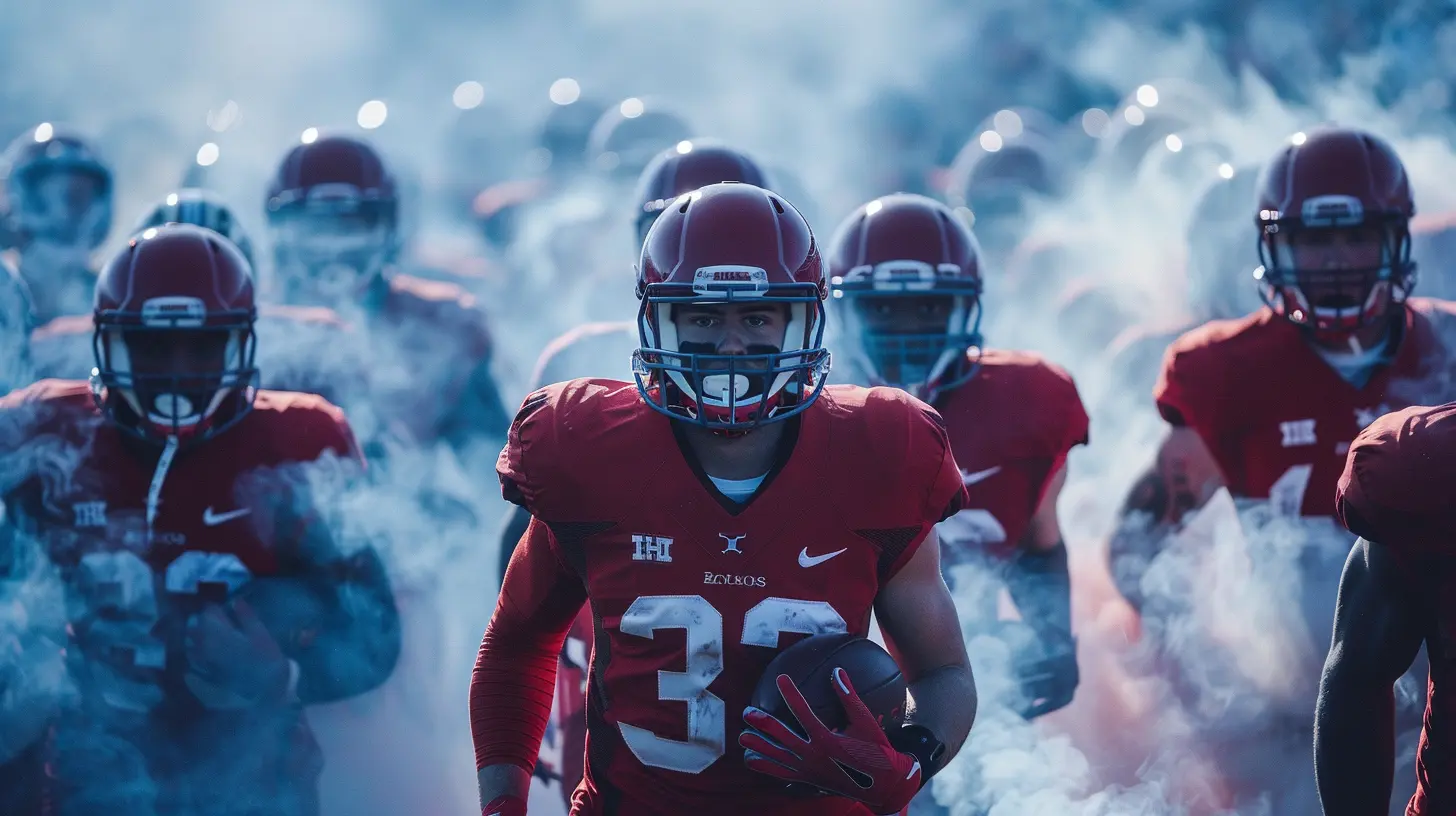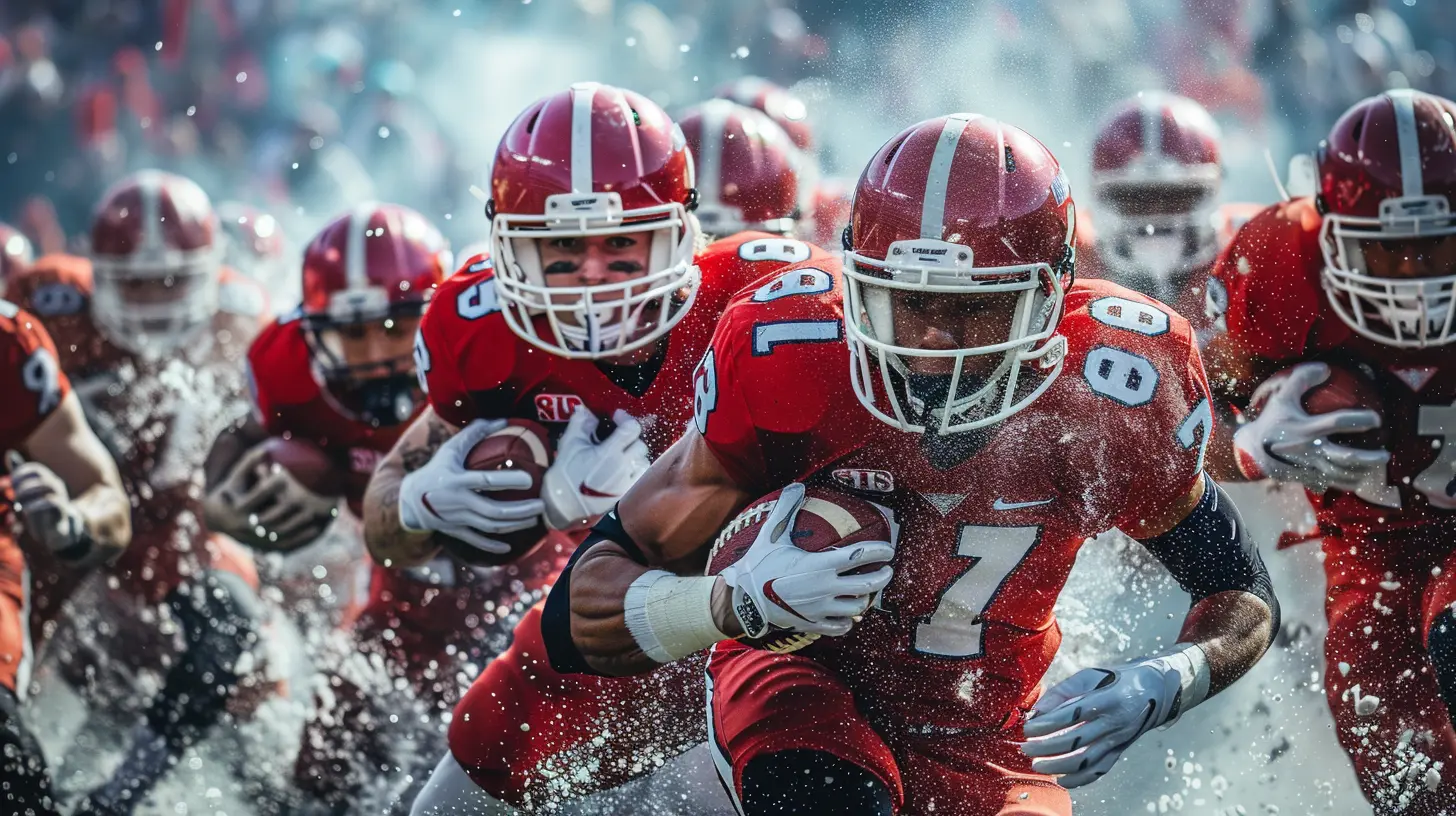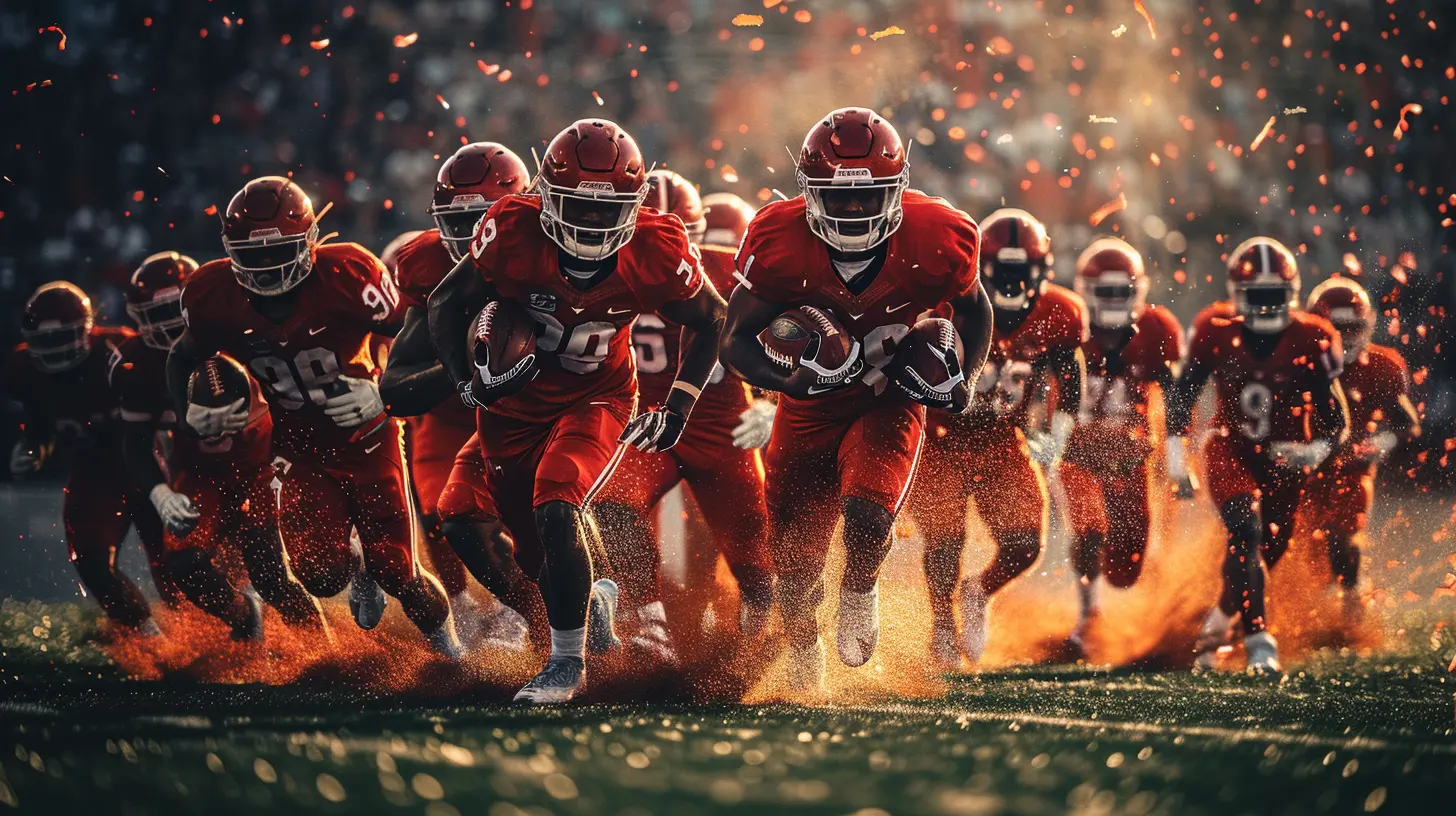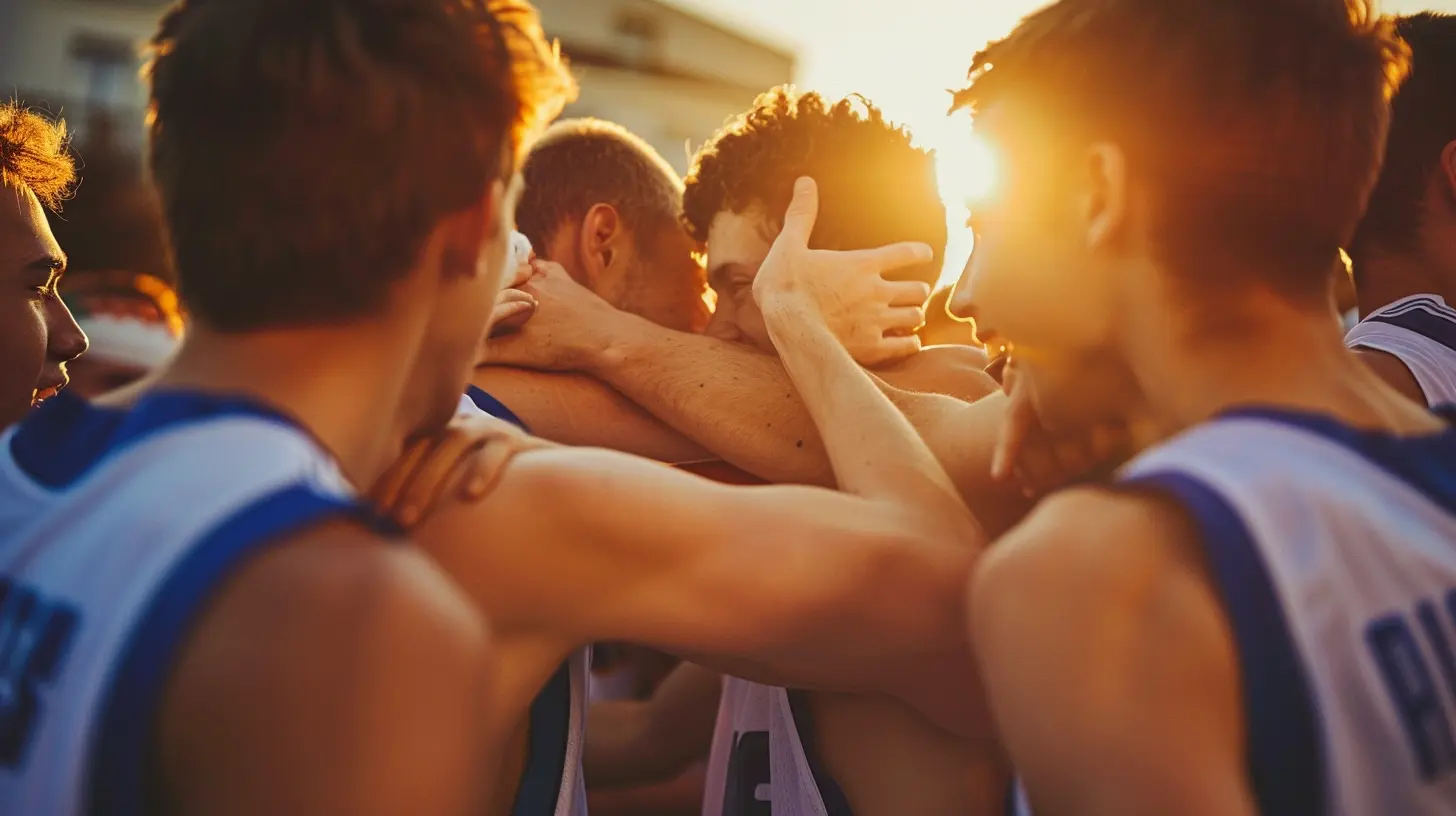The Power of Team Chemistry in College Athletics
8 July 2025
When we talk about success in college sports, most people immediately think about talent, coaching, or facilities. And sure, those things matter big-time. But there’s something else—something less flashy yet equally powerful—that plays a massive role in shaping champions: team chemistry.
Let’s be honest, you can have a roster full of five-star recruits, but if they don’t jive well together, you might as well be running a solo track meet. Talent gets you in the game, but chemistry? That’s what wins championships.

What Exactly Is Team Chemistry?
Think of team chemistry like the secret sauce in a grandma’s recipe. It’s hard to define, but you know it when you feel it. It’s that unspoken understanding between teammates, the trust, the mutual respect, and the shared goal of being better—together.Team chemistry is all about how well players connect with one another. It includes communication, emotional bonds, support, and even the vibes in the locker room. Basically, it's the glue that keeps a team tight and motivated, even when the scoreboard isn’t in their favor.

The Foundation: Trust and Communication
You can’t build chemistry if there’s no trust. It’s the foundation of any strong team dynamic. When players trust each other, they pass the ball more confidently, cover for each other defensively, and communicate without hesitation.And speaking of communication, let’s not overlook how crucial it is. You can’t expect the team to flow if everyone’s quiet or yelling over each other. Communication, both verbal and non-verbal, makes everything smoother—from running plays to managing pressure situations.
Ever watched a point guard signal a play with just a glance or a quarterback change the play mid-snap with a simple gesture? That’s chemistry in full effect.

Why Chemistry Can Beat Talent
Let’s break a myth here: talent alone doesn't win titles. Sure, it helps—but when the pressure’s on, it’s the teams with real chemistry that come through. Why? Because they’ve built something deeper than just game plans and drills.When a team clicks on a personal level, they play harder. They hustle for each other. They pick each other up after mistakes. That kind of connection isn’t taught in the weight room—it’s built in movie nights, team dinners, long bus rides, and heart-to-heart talks after tough losses.
Real-Life Example: Underdog Victories
Remember when a lower-seeded college team shocked the world during March Madness or when an unranked football team upset a conference giant? More often than not, that magic isn't about raw skill—it’s about those players going to war for each other.That’s the power team chemistry brings. It can level the playing field or even tilt it entirely.

The Coach's Role in Building Chemistry
Coaches aren’t just play-callers—they're culture builders. A good coach knows the Xs and Os. A great coach knows how to build trust, foster relationships, and create an environment where chemistry can grow.Here’s where things get real: coaches have to manage egos, resolve conflict, and make sure every player—from the star point guard to the last one off the bench—feels valued. That balance? It often separates a good season from a great one.
Creating a Positive Team Culture
The most successful teams aren’t just skilled—they enjoy being around each other. Coaches can foster this by:- Planning team bonding activities
- Encouraging open communication
- Celebrating small wins
- Promoting inclusion and diversity
- Letting players lead
When athletes feel seen and heard, they’re more likely to buy into the system—and into each other.
The Role of Leaders Within the Team
Every team has a few voices that carry more weight—not because they yell the loudest, but because they show up every day, set the tone, and lead by example. These are your captains and unofficial leaders.They’re usually the glue guys—the ones who smooth things over when tensions rise, offer encouragement after missed shots, or rally everyone when things get tough.
You don’t even need to wear a “C” on your jersey to be a leader. It’s in your actions, attitude, and how you treat your teammates.
Chemistry Off the Field = Chemistry On the Field
One of the easiest ways to measure team cohesion? Look at how they interact off the field. Are they hanging out? Grabbing food together? Do they celebrate milestones like birthdays or academic achievements?Strong off-field bonds create trust and empathy, which naturally translate onto the playing surface.
Think about it like this: would you rather battle next to someone you barely know or someone who’s like your brother or sister? Yeah, thought so.
The Mental Game: Confidence Through Connection
Here’s an underrated benefit of chemistry: it boosts confidence. When a team believes in each other, individual players feel more secure in their roles.No one wants to look over their shoulder after a mistake. But when you know your teammates have your back, you play freer, risk more, and ultimately perform better.
Handling Losses and Adversity
Let’s be real, every team hits rough patches. Injuries, losing streaks, and internal drama happen. But teams with strong chemistry? They bend but don’t break.They rally. They reflect instead of blame. And most importantly, they keep fighting.
Because when you care about the person next to you, quitting isn't even an option.
Chemistry vs. Clique Culture
Now, let’s not sugarcoat it—sometimes things go south. You get cliques, drama, and ego battles. That stuff can poison a team from the inside out.Chemistry doesn’t mean everyone’s best friends. It means people respect each other, support the mission, and work together.
Coaches and leaders need to squash cliques fast and promote a culture of inclusivity. It’s either “we” or “me”—you can’t have both.
Social Media’s Impact on Team Dynamics
In today’s world, social media plays a big role in how athletes connect—or disconnect. It can be a double-edged sword. On one hand, it lets players hype each other and bond. On the other, it can lead to distractions, drama, or jealousy.The key? Use it to build each other up. Post those locker room vids, share motivational quotes, shout out your teammates for crushing it. Just don’t let likes and followers mess with real-life relationships.
Building Chemistry in a Post-COVID World
Let’s not forget: the pandemic changed everything. Team bonding became virtual, seasons were cut short, and athletes were more isolated. Rebuilding chemistry now takes more intention than ever.It means carving out time for connection—even if it’s just grabbing coffee after practice or checking in with a teammate who seems off. Chemistry starts with care. Simple as that.
What Fans and Recruits Notice
Believe it or not, chemistry is visible. You can feel it watching a team. Are they hyped for each other? Celebrating together? Picking each other up?Recruits definitely notice. No one wants to join a program filled with tension. And fans love a tight-knit team—they root harder for squads that feel like family, not just a group of individuals.
Tips for Building Team Chemistry in College Athletics
Let’s wrap up with some practical, straight-up ways teams can build chemistry starting today:- Team Dinners – Breaking bread builds bonds. It’s science.
- Retreats or Team Trips – Change the scenery, change the vibe.
- Open Forums – Let players air concerns in safe spaces.
- Off-the-Field Activities – Video games, movie nights, pick-up games, anything fun.
- Accountability Partners – Pair players up to check in on each other.
- Celebrate Together – Wins, birthdays, even academic achievements.
- Lead with Positivity – It’s contagious, in a good way.
Final Thoughts
At the end of the day, stats fade, banners hang, but what players remember most? The relationships. The locker room jokes. The team huddles after a big win—or a crushing loss.The power of team chemistry in college athletics isn't just about winning, it’s about belonging. And when athletes feel that? They’re unstoppable.
So if you’re part of a team—player, coach, or leader—don’t sleep on chemistry. Build it. Protect it. Celebrate it. Because when the team becomes a family, greatness follows.
all images in this post were generated using AI tools
Category:
College SportsAuthor:

Everett Davis
Discussion
rate this article
1 comments
Quincy McVey
Team chemistry fuels success! When athletes unite, they create unstoppable momentum. Together, anything is possible. Let’s go, teams!
July 21, 2025 at 2:42 AM

Everett Davis
Absolutely! Team chemistry is indeed the backbone of success in athletics. When athletes work together, they harness that momentum to achieve remarkable feats. Let's rally behind our teams!


